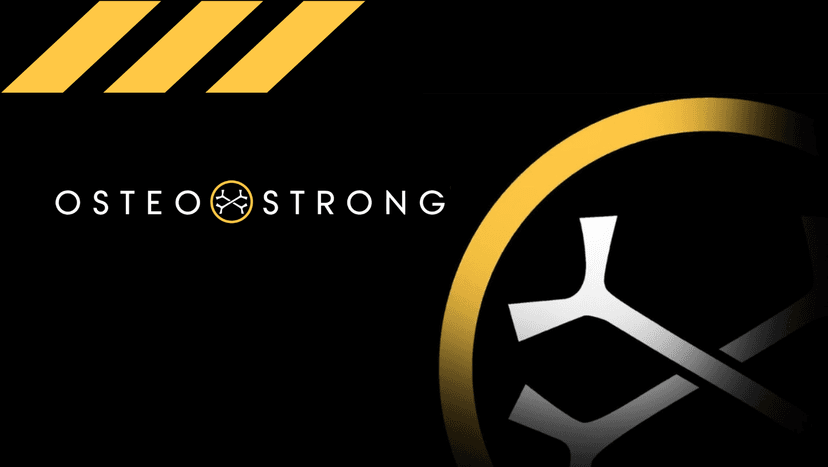As we age, our bodies find it harder to absorb nutrients, making supplements a helpful option for many. This article explores some of the most talked-about supplements that science suggests could help us live longer and healthier lives. Let's dive into what the research says about these promising options.
Key Takeaways
- Vitamin D may support aging bodies by improving bone health and immune function.
- Micro-dosed lithium shows potential as a longevity aid, but more research is needed to confirm its benefits.
- Fisetin, found in fruits like strawberries, has anti-aging properties and is backed by several studies.
- Nicotinamide Mononucleotide (NMN) might help slow down aging processes, according to early research.
- Magnesium malate is important for muscle function and energy production, which are crucial as we age.
The Role of Vitamin D in Longevity
Benefits for Aging Bodies
Vitamin D is crucial for maintaining bone health, especially as we age. It helps our bodies absorb calcium, which is essential for strong bones. This can prevent conditions like osteoporosis, which are common in older adults. Additionally, vitamin D supports immune function, reducing the risk of infections and chronic diseases.
Recommended Dosage and Sources
The recommended daily allowance (RDA) for vitamin D varies by age, but for most adults, it is around 600 to 800 IU. You can get vitamin D from various sources:
- Sunlight exposure
- Fatty fish like salmon and mackerel
- Fortified foods such as milk and cereals
- Supplements
Scientific Evidence Supporting Vitamin D
Research has shown that adequate levels of vitamin D are linked to a lower risk of several age-related conditions. Studies suggest that vitamin D can help reduce the risk of heart disease, certain cancers, and even cognitive decline. While more research is needed, the current evidence supports the role of vitamin D in promoting longevity.
Ensuring you get enough vitamin D is a simple yet effective way to support your overall health as you age.
Micro-Dosed Lithium: A Potential Longevity Aid
Mechanisms of Action
Micro-dosed lithium works in several ways to support longevity. It has epigenetic effects, meaning it can turn on genes that help produce healthy proteins. One such protein is brain-derived neurotrophic factor (BDNF), which is crucial for brain health. Lithium also promotes autophagy, a process that helps clear out damaged proteins and other materials from cells, slowing down aging.
Safety and Dosage Guidelines
In psychiatric settings, lithium is given in doses of a few hundred milligrams per day to treat conditions like bipolar disorder. However, for longevity, much smaller doses are used, typically ranging from 0.3 to 5 mg per day. These lower doses are generally considered safe and have fewer side effects.
Current Research Findings
Studies have shown that micro-dosed lithium can extend lifespan and slow aging in various species. In humans, it has been linked to reduced mortality and a lower risk of neurodegenerative diseases like Alzheimer's. Long-term clinical trials have also shown improvements in conditions like mild cognitive impairment when participants took micro-dosed lithium for six months or longer.
Micro-dosed lithium could be a promising supplement for those looking to improve their brain health and potentially extend their lifespan.
Exploring the Benefits of Fisetin
Fisetin is a flavonoid that has shown promise in promoting brain health and combating aging. It helps by increasing the number of neurites, which are projections from brain cells that connect with other brain cells. Fisetin also inhibits the buildup of beta-amyloid protein, improves blood vessel health in the brain, and reduces neuroinflammation. These properties make it a potential aid in slowing down brain aging.
Fisetin can be found in various fruits and vegetables. Some of the richest sources include:
- Strawberries
- Apples
- Persimmons
- Onions
- Cucumbers
Including these foods in your diet can help you naturally obtain fisetin.
Research has shown that fisetin can improve outcomes in aging-related diseases. For instance, in a study involving mice with Huntington's disease, those given fisetin lived about 30% longer than the control group. Additionally, fisetin has been found to reduce inflammation, potentially offering similar benefits to anti-inflammatory drugs like ibuprofen.
Fisetin's ability to activate sirtuins and inhibit the PI3/AKT-mTOR pathway further underscores its potential in extending lifespan and improving metabolism.
Nicotinamide Mononucleotide (NMN) and Aging
How NMN Works
Nicotinamide Mononucleotide (NMN) is a key precursor to NAD+ (nicotinamide adenine dinucleotide), a vital molecule found in all our cells. NAD+ is essential for cellular functions, including energy production and DNA repair. As we age, NAD+ levels naturally decline, which can affect our overall health. By supplementing with NMN, we can boost NAD+ levels, potentially slowing down some aging processes.
Potential Benefits for Longevity
NMN supplementation has shown promise in several areas related to aging. Some potential benefits include:
- Improved insulin sensitivity, which can help reduce the risk of age-related diseases like heart disease and Alzheimer's.
- Enhanced DNA repair, which is crucial for maintaining cellular health.
- Increased energy production, leading to better overall vitality.
Research and Clinical Trials
Numerous studies have been conducted to explore the effects of NMN on aging. Here are some key findings:
| Study | Findings |
|---|---|
| Study 1 | NMN improved insulin sensitivity in pre-diabetic women. |
| Study 2 | Increased NAD+ levels were linked to better DNA repair mechanisms. |
| Study 3 | Enhanced energy production was observed in older adults taking NMN supplements. |
While the research is promising, it's important to note that NMN is still being investigated as a drug, and its availability as a dietary supplement may be limited in some regions.
The Importance of Magnesium Malate for Aging
Health Benefits
Magnesium malate is a compound that combines magnesium with malic acid. This combination is known to support energy production and muscle function. As we age, maintaining muscle health and energy levels becomes crucial. Magnesium malate also helps in reducing muscle pain and improving overall physical performance.
Dosage Recommendations
Experts suggest that the daily intake of magnesium malate should be tailored to individual needs. However, a general guideline is:
- Adults: 300-400 mg per day
- Older Adults: 400-500 mg per day
It's always best to consult with a healthcare provider before starting any new supplement regimen.
Scientific Studies on Magnesium Malate
Research has shown that magnesium deficiency is linked to several aging markers, such as telomere shortening and changes in DNA. Studies indicate that magnesium malate can help mitigate these effects, promoting healthier aging. Additionally, it has been found to play a role in mood stabilization and reducing inflammation, which are important factors in aging.
Including magnesium-rich foods like dark leafy greens, nuts, and beans in your diet can also help maintain adequate magnesium levels naturally.
Hyaluronic Acid: More Than Just Skin Deep
Benefits Beyond Skincare
Hyaluronic acid is a vital substance for our skin and joints. It is found throughout the body as a key part of the extracellular matrix (ECM), which surrounds and holds our cells together. Without the ECM, our cells would just be a pile on the floor. Hyaluronic acid is also present in cartilage and ligaments, helping to improve conditions like osteoarthritis, especially in the knees.
Dosage and Administration
There are different forms of hyaluronic acid available. A well-known manufacturer is Hyabest, which has been clinically tested and shown to improve skin appearance. The recommended dose is typically around 120 mg taken before bed.
Scientific Research on Hyaluronic Acid
Studies have shown that increasing enzymes that produce hyaluronic acid can extend lifespan in mice. When taken orally, hyaluronic acid is broken down in the gut and absorbed into the bloodstream, where it reaches skin cells and encourages them to produce more hyaluronic acid. This leads to reduced wrinkles and younger-looking skin. Additionally, components of hyaluronic acid, like acetyl-glucosamine, have been shown to extend lifespan in animals.
Calcium Alpha Ketoglutarate (CaAKG) and Its Role in Longevity
Mechanisms of CaAKG
Calcium Alpha Ketoglutarate (CaAKG) is a compound that plays a crucial role in the body's energy production. It is a key player in the Krebs cycle, which is the process that generates most of the energy in our cells. The calcium in CaAKG helps stabilize the compound and slow its absorption, making its effects last longer. This stabilization is important for its potential longevity benefits.
Health Benefits
CaAKG has been shown to extend lifespan in various species. In humans, it can protect organs during stress, such as during surgeries or dialysis. It also supports collagen production and bone health, potentially slowing down osteoporosis. Preliminary studies suggest that CaAKG may even rejuvenate the body, as measured by epigenetic clocks.
Research Evidence
Research on CaAKG is promising but still in its early stages. Studies have demonstrated its ability to extend lifespan and improve health markers in animals. Human studies are more limited but show potential benefits in organ protection and bone health. More research is needed to fully understand its effects and optimal dosages.
CaAKG is a promising supplement for longevity, but more research is needed to confirm its benefits in humans.
Conclusion
As we age, our bodies may not absorb nutrients as well as they used to. This is where supplements can play a role in helping us live longer and healthier lives. Science-backed supplements like vitamin D, micro-dosed lithium, and magnesium malate show promise in supporting longevity. However, it's important to remember that not all supplements are created equal. Some popular ones might not have much science behind them and could even be harmful. Always consult with a healthcare provider before starting any new supplement regimen. While supplements can be beneficial, they are not a magic solution. A balanced diet, regular exercise, and a healthy lifestyle are still key to aging well.
Frequently Asked Questions
What are longevity supplements?
Longevity supplements are substances that aim to slow down aging and extend lifespan. They include things like fisetin, micro-dosed lithium, and calcium alpha ketoglutarate (CaAKG).
Why might older people need supplements?
As people age, their bodies may not absorb nutrients as well as they used to. Supplements can help fill in the gaps and support overall health and longevity.
Is Vitamin D important for aging?
Yes, Vitamin D is important because it helps keep bones strong and supports the immune system. It can be especially helpful for older adults.
Are there any risks to taking supplements?
While many supplements are safe, taking too much of some can be harmful. It's important to follow dosage recommendations and consult with a healthcare provider.
What is micro-dosed lithium?
Micro-dosed lithium is a small amount of lithium that may help with brain health and mood stabilization. Some studies suggest it might also help with longevity.
How do I know which supplements to take?
It's best to talk to a healthcare provider to figure out which supplements are right for you. They can help you understand your specific needs and recommend dosages.
























